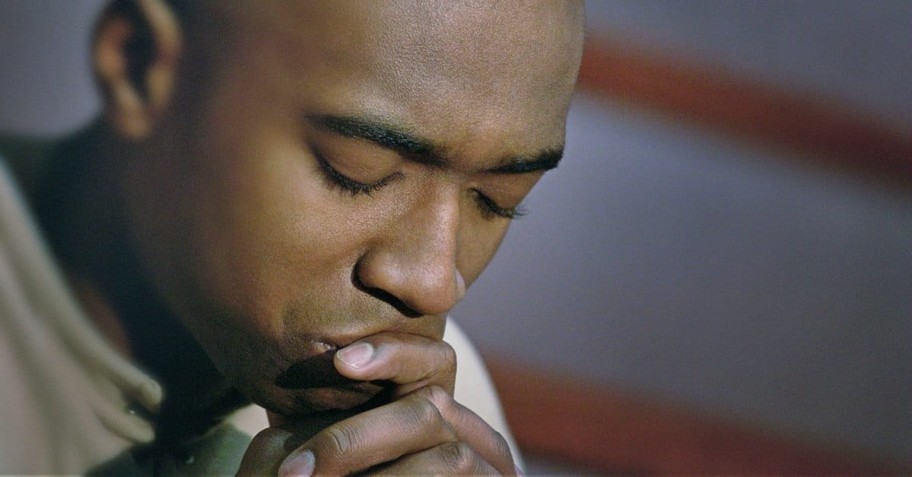10 Ways We Live Differently When God is Our Portion

What do you consider your reward in life? A fulfilling career, satisfying relationships, or being able to find joy in the simple things in life? What about success, notoriety, or financial security?
The problem with those “rewards” is that we can often feel we are missing the mark when our expectations aren’t met. But when you and I adopt a mindset like some of the great men of faith in the Scriptures, we can funnel every circumstance in life, every disappointment, and even every miserable failure, through the grid of God being our portion and reward.
Consider Abraham, who waited years for God to deliver upon a promise to give him a son. Remember David the shepherd boy, psalmist, and giant killer who became Israel’s greatest king, but was also a fugitive for many years of his life. And consider Paul, who was shipwrecked, imprisoned, and beaten and left for dead several times. They all considered God as their portion – or reward in life – regardless of their circumstances.
What if you and I were to adopt the motto: “The Lord is my portion?” Here are 10 ways your life looks different when God – not money, success or any other person or thing – is your ultimate prize and reward.
Photo courtesy: ©Thinkstock

1. You don't worry about your provision.
In this uncertain economy which can change from day to day, it’s natural to worry if we can make financial ends meet, pay off our debts, and retire one day. But David’s assurance that God was his portion kept him from stressing about the future or even hoping for an earthly inheritance.
In Psalm 16:5-6, David sang: “Lord, you alone are my portion and my cup; you make my lot secure. The boundary lines have fallen for me in pleasant places; surely I have a delightful inheritance.” (NASB)
Can you say that God makes your lot “secure” and provides all that you need (Philippians 4:13), and has ensured for you a delightful inheritance as a child of God? When God is your portion, that can be your song, too.
Photo courtesy: ©Thinkstock/Stas_V

2. You have hope for your future.
When circumstances weigh heavy on you, when you’re in a difficult season of life, when hope is simply hard to find, what do you do? Sometimes it can be discouraging to even think about getting out of bed and facing another day, let alone think about the far-off future.
Yet, Jeremiah – who is known as “The Weeping Prophet” because of how burdensome his calling was – maintained his hope in God’s faithfulness and proclaimed that the Lord’s “compassions never fail. They are new every morning” (Lamentations 3:22-23).
Jeremiah proclaimed: “‘The Lord is my portion; therefore I will wait for him.’ The Lord is good to those whose hope is in him to the one who seeks him; it is good to wait quietly for the salvation of the Lord” (Lamentations 3:24-26).
Can you find hope in the words of the Weeping Prophet who could, despite his lot in life, still say “The Lord is good” and “The Lord is my portion”? God knows what your tomorrow holds and He promises it is good.
Photo courtesy: Unsplash.com

3. You are directed and comforted by God's Word.
Life can be confusing. We have many opportunities, but not all are from God. How do we know which door to walk through? How do we know when to say “no”? The Psalmist relied on God as his portion and reward and knew that as he obeyed God’s Word he would be given clear direction and he would experience no regrets.
In Psalm 119, the psalmist said: “My comfort in my suffering is this: Your promise preserves my life… I remember, Lord, your ancient laws, and I find comfort in them. Your decrees are the theme of my song wherever I lodge. In the night, Lord, I remember your name, that I may keep your law. This has been my practice: I obey your precepts. You are my portion, Lord; I have promised to obey your words” (verses 50, 52, 54-57).
When you see God as your portion, you treasure the Word of God and let it guide you, comfort you, and assure you that you are in His will.
Photo courtesy: Unsplash.com

4. You feel safe in His care.
Fear, worry, and constantly asking “what if?” can be debilitating. Yet, when God is our portion, we know to Whom we belong and in Whose hands we are being held, and that brings a confidence to our life and a closeness to our Lord.
In Psalm 145, as David was hiding in a cave because King Saul was seeking to kill him, he sang about his confidence in the Lord as his portion, his refuge, his protection: “I cry aloud to the Lord; I lift up my voice to the Lord for mercy. I pour out before him my complaint; before him I tell my trouble. When my spirit grows faint within me, it is you who watch over my way. In the path where I walk people have hidden a snare for me. Look and see, there is no one at my right hand; no one is concerned for me. I have no refuge; no one cares for my life. I cry to you, Lord; I say, ‘You are my refuge, my portion in the land of the living’” (verses 1-5).
Even when it seems like everyone in the world is against you, when God is your portion, you can go through life feeling safe, secure, and ever protected.
Photo courtesy: Pexels.com

5. You are content with your life.
When the Lord is your portion, you are content and you know what it means to have enough. Instead of praying for more money, a bigger house, a better job, and a happier or more fulfilling life, you realize you have been abundantly blessed.
The writer of Proverbs 30:7-9 understood God as His portion, when he said: “Two things I asked of You, Do not refuse me before I die: Keep deception and lies far from me, Give me neither poverty nor riches; Feed me with the food that is my portion, That I not be full and deny You and say, ‘Who is the Lord?’ Or that I not be in want and steal, And profane the name of my God.” (NASB).
Are you content with what God has given you, realizing He sees what is best for you and knows what you can handle and what you can’t? If you see God as your portion, you will be.
Photo courtesy: Pexels.com

6. You focus on your blessings, not your burdens.
When the Lord is your portion, you not only see the glass as half full (as opposed to half empty), you see it as overflowing.
In Psalm 16:6, David said, “the lines have fallen to me in pleasant places; surely my inheritance is delightful.” Notice how David didn’t say, “I’m barely getting by” or, “Some days are great, but some really stink.”
That’s because David was king of Israel, you might be thinking. Of course he was full of praise, he actually DID have a delightful inheritance! Yet, Psalm 16 opens with David asking God to keep him safe. That indicates he might have written that song when was running for his life from King Saul. When complaint could’ve been on his tongue, he was singing praises instead that God was his “refuge.” (verse 1). David recognized that God was his portion and that was the blessing upon which he focused.
Photo courtesy: ©Thinkstock/DesignPics

7. You live joyfully with your spouse.
To recognize God as your portion means you are satisfied with what He has given you. Not only satisfied, but joyful in it, because you recognize His portion as His gift to you.
Solomon, the wisest man who ever lived, also indulged himself with far more than he needed. Thus, at the end of his life he clearly recognized emptiness and worthless pursuits. Solomon had 700 wives and 300 concubines. Certainly, he would recognize emptiness when it came to marriage, too.
At the end of his life, Solomon wrote: “Live joyfully with the wife whom you love all the days of your vain life which He has given you under the sun, all your days of vanity; for that is your portion in life, and in the labor which you perform under the sun” (Ecclesiastes 9:9). Solomon’s words could be that of a bitter reflection. What if he had lived joyfully with the one spouse God had given Him?
There is emptiness in seeking more than our portion, and more than God has given us – especially when it comes to marriage. Are you satisfied with the husband or wife that you truly believed at one time God had given you? Or would you be happier with someone else? When God is your portion and you’re satisfied with the portion He’s given you, you will find joy in your spouse and see him or her as a reward from God.
Photo courtesy: ©Unsplash.com/PhotobyEvertonVila

8. You are able to press on.
During difficult seasons of life we can find ourselves feeling unable to persevere. The task looks too daunting. The absence of someone we love looks too lonely. The diagnosis looks too fearful. The thought of going on seems unbearable.
Yet Asaph saw God as the strength of his heart and his portion… not just in this life but in the life to come.
Asaph clearly knew his treasure and His reason for being, when he expressed: “Whom have I in heaven but you? And earth has nothing I desire besides you. My flesh and my heart may fail, but God is the strength of my heart and my portion forever” (Psalm 73:25-26).
Can you recite that quote daily until you really believe that God is your portion?
Photo courtesy: Unsplash.com

9. You aren't afraid to die.
The unknown can be terrifying. But Jesus comforted us by telling us what to anticipate.
“Don’t let your hearts be troubled. Trust in God; trust also in me. In my father’s house are many rooms; if it were not so, I would have told you. I am going there to prepare a place for you. And if I go and prepare a place for you, I will come back and take you to be with me that you also may be where I am” (John 14:1-3).
We tend to be fearful of what will happen to those we leave behind, what might happen to us after we die, or the overall fear of missing out because of a life cut short. Yet, Paul said, “For to me, to live is Christ and to die is gain” (Philippians 1:21). There was a man who clearly knew His portion… and His reason for living – and dying.
When Christ is your portion, death is the route to bringing your great reward to fullness.
Photo courtesy: Unsplash.com

10. You can surrender the need to succeed.
In Genesis 15:1, God told Abraham, “I am your shield, your exceedingly great reward.”
The Apostle Paul understood this “exceedingly great reward” in Christ when he said, “I consider everything (education, achievement, a spotless reputation, self-achieved righteousness) a loss because of the surpassing worth of knowing Christ Jesus my Lord, for whose sake I have lost all things. I consider them garbage, that I may gain Christ and be found in him…” (Philippians 3:8-9).
When we understand the worth of knowing Christ, we can surrender the need to succeed in our eyes and in the eyes of others. When He is our portion we find our reward and our worth in Him, not in anything the world offers. And we can say as David did in Psalm 16:1: “You are my Lord; apart from you I have no good thing.”
When you and I live like God is our inheritance, our share, and our reward, we also understand that nothing else compares to Him. We’ve won the prize.
Cindi McMenamin is a pastor’s wife, mother, and national speaker with more than 30 years experience helping women come to know God more intimately. She is the author of 16 books, including the best-selling When Women Walk Alone (more than 125,000 copies sold), When God Sees Your Tears, and When a Woman Overcomes Life’s Hurts. Her newest books include, Drama Free: Finding Peace When Emotions Overwhelm You, and 12 Ways to Experience More with Your Husband: More Trust, More Passion, More Communication. For more on her speaking ministry, books, or free articles to strengthen your soul, marriage, or parenting, see her website www.StrengthForTheSoul.com.
Originally published April 26, 2018.





